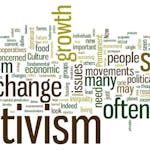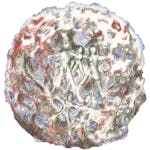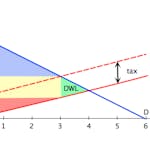What is public good?
From the standpoint of economics, in order for goods and services to be classified as public goods, they must be both non-rivalrous, and non-excludable.
Goods and services are considered rivalrous if consumption by one party serves to prevent consumption by another party. Goods and services are considered excludable if they are only accessible to paying parties. Public goods, then, are those goods and services that are available to all, where the supply does not decrease to one party through consumption by another party.
In his landmark 1954 paper, The Pure Theory of Public Expenditure, Paul Samuelson defined collective consumption of good and services as “[goods] which all enjoy in common in the sense that each individual's consumption of such a good leads to no subtractions from any other individual's consumption of that good.”
Popular Categories on Coursera: Business | Computer Science | Data Science | Information Technology | Health | Career Success | Free Courses | Guided Projects | See All
Popular Degrees on Coursera: Business Degrees | Computer Science Degrees | Data Science Degrees | Public Health Degrees | Bachelor’s Degrees | Master’s Degrees | See all online degrees on Coursera
Popular Professional Certificates on Coursera: Google IT Support Certificate | IBM Full Stack Development Certificate | Facebook Social Media Marketing Certificate | See all professional certificates on Coursera
Popular MasterTrack Certificates on Coursera: Social Work: Practice, Policy, and Research Certificate | Instructional Design Certificate | Machine Learning for Analytics Certificate | See all MasterTrack certificates on Coursera























